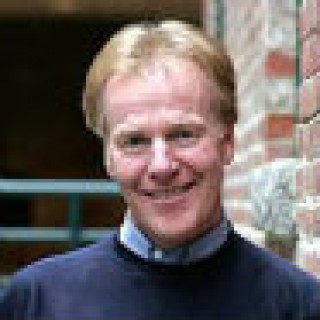Peter M. Senge is the founding chair of the Society for Organizational Learning (SoL), a global community of corporations, researchers, and consultants dedicated to the “interdependent development of people and their institutions.” Senge is the author of the widely acclaimed book, The Fifth Discipline: The Art and Practice of the Learning Organization (1990); with colleagues Charlotte Roberts, Rick Ross, Bryan Smith, and Art Kleiner, he is the co-author of The Fifth Discipline Fieldbook: Strategies and Tools for Building a Learning Organization (1994). He and George Roth coauthored the fieldbook, The Dance of Change: The Challenges to Sustaining Momentum in Learning Organizations (March, 1999). Along with Nelda Cambron-McCabe, Timothy Lucas, Bryan Smith, Janis Dutton, and Art Kleiner, he coauthored the award-winning fieldbook on education, Schools That Learn: A Fifth Discipline Fieldbook for Educators, Parents, and Everyone Who Cares About Education (September, 2000). The Fifth Discipline hit a nerve deep within the business and education community by introducing the theory of learning organizations. Since its publication, more than a million copies have been sold worldwide. In 1997, Harvard Business Review identified it as one of the seminal management books of the past 75 years. There have been feature articles in BusinessWeek, Fortune, Fast Company, Sloan Management Review, and other leading business periodicals regarding the work of Senge and his colleagues at MIT and SoL. The Fifth Discipline Fieldbook (over 400,000 copies sold) was developed in response to questions from readers of The Fifth Discipline who wanted more help with tools, methods, and practical experiences in developing enhanced learning capabilities within their own companies. The Dance of Change is based on more recent experiences of companies developing learning capabilities over many years, and the strategies leaders develop to deal with the many challenges this work entails. Senge has also authored many articles published in both academic journals and the business press on systems thinking in management. The Journal of Business Strategy (September/October 1999) named Senge as one of the 24 people who had the greatest influence on business strategy over the last 100 years, the Financial Times (2000) named him as one of “The World’s Top Management Gurus,” and BusinessWeek (October 2001) rated him as one of the “Top Ten Management Gurus.” Senge has lectured extensively throughout the world, translating the abstract ideas of systems theory into tools for the better understanding of economic and organizational change. His areas of special interest focus on decentralizing the role of leadership in organizations so as to enhance the capacity of all people to work productively toward common goals. Senge’s work articulates a cornerstone position of human values in the workplace; namely, that vision, purpose, reflectiveness, and systems thinking are essential if organizations are to realize their potential. He has worked with leaders in business, education, healthcare, and government. Senge holds a BS in engineering from Stanford University, as well as an MS in social systems modeling and a PhD in management from MIT.

